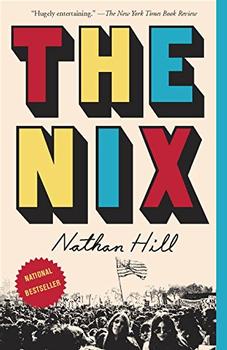Summary | Excerpt | Reading Guide | Reviews | Beyond the Book | Readalikes | Genres & Themes | Author Bio

PROLOGUE
Late Summer 1988
IF SAMUEL HAD KNOWN his mother was leaving, he might have paid more attention. He might have listened more carefully to her, observed her more closely, written certain crucial things down. Maybe he could have acted differently, spoken differently, been a different person.
Maybe he could have been a child worth sticking around for.
But Samuel did not know his mother was leaving. He did not know she had been leaving for many months now—in secret, and in pieces. She had been removing items from the house one by one. A single dress from her closet. Then a lone photo from the album. A fork from the silverware drawer. A quilt from under the bed. Every week, she took something new. A sweater. A pair of shoes. A Christmas ornament. A book. Slowly, her presence in the house grew thinner.
She'd been at it almost a year when Samuel and his father began to sense something, a sort of instability, a puzzling and disturbing and some-times even sinister feeling of depletion. It struck them at odd moments. They looked at the bookshelf and thought: Don't we own more books than that? They walked by the china cabinet and felt sure something was missing. But what? They could not give it a name—this impression that life's details were being reorganized. They didn't understand that the reason they were no longer eating Crock-Pot meals was that the Crock-Pot was no longer in the house. If the bookshelf seemed bare, it was because she had pruned it of its poetry. If the china cabinet seemed a little vacant, it was because two plates, two bowls, and a teapot had been lifted from the collection.
They were being burglarized at a very slow pace.
"Didn't there used to be more photos on that wall?" Samuel's father said, standing at the foot of the stairs, squinting. "Didn't we have that picture from the Grand Canyon up there?"
"No," Samuel's mother said. "We put that picture away." "We did? I don't remember that."
"It was your decision."
"It was?" he said, befuddled. He thought he was losing his mind. Years later, in a high-school biology class, Samuel heard a story about a certain kind of African turtle that swam across the ocean to lay its eggs in South America. Scientists could find no reason for the enormous trip. Why did the turtles do it? The leading theory was that they began doing it eons ago, when South America and Africa were still locked together. Back then, only a river might have separated the continents, and the turtles laid their eggs on the river's far bank. But then the continents began drifting apart, and the river widened by about an inch per year, which would have been invisible to the turtles. So they kept going to the same spot, the far bank of the river, each generation swimming a tiny bit farther than the last one, and after a hundred million years of this, the river had become an ocean, and yet the turtles never noticed.
This, Samuel decided, was the manner of his mother's departure. This was how she moved away—imperceptibly, slowly, bit by bit. She whittled down her life until the only thing left to remove was herself.
On the day she disappeared, she left the house with a single suitcase.
1
The headline appears one afternoon on several news websites almost simultaneously: GOVERNOR PACKER ATTACKED!
Television picks it up moments later, bumping into programming for a Breaking News Alert as the anchor looks gravely into the camera and says, "We're hearing from our correspondents in Chicago that Governor Sheldon Packer has been attacked." And that's all anyone knows for a while, that he was attacked. And for a few dizzying minutes everyone has the same two questions: Is he dead? And: Is there video?
Excerpted from The Nixby Nathan Hill. Copyright © 2016 by Nathan Hill. All rights reserved. No part of this excerpt may be reproduced or reprinted without permission in writing from the publisher.
Your guide toexceptional books
BookBrowse seeks out and recommends the best in contemporary fiction and nonfiction—books that not only engage and entertain but also deepen our understanding of ourselves and the world around us.